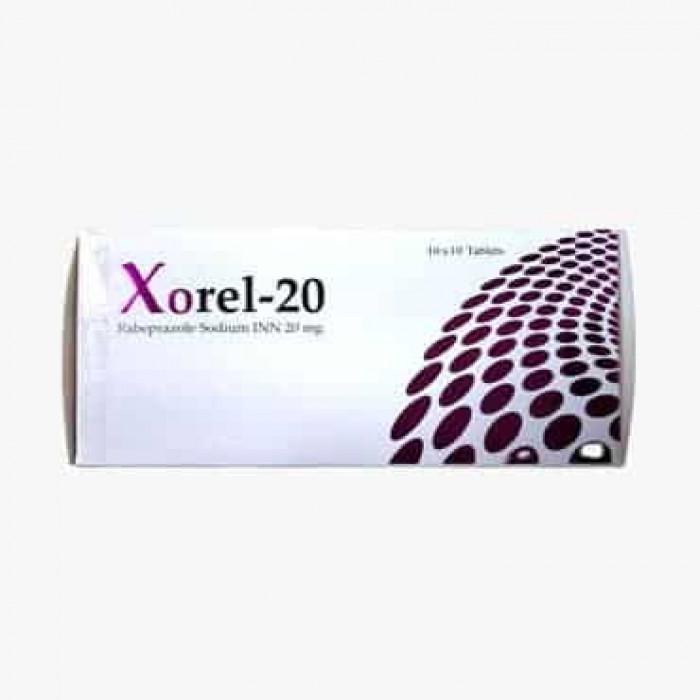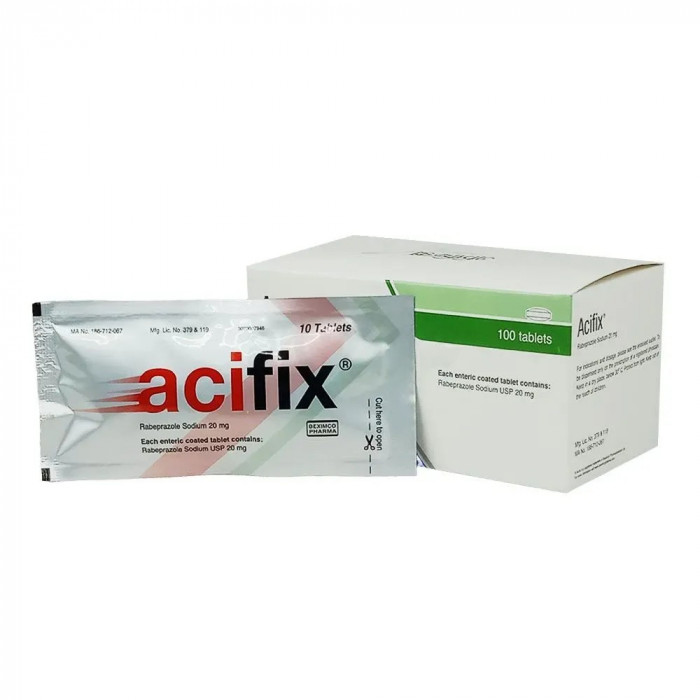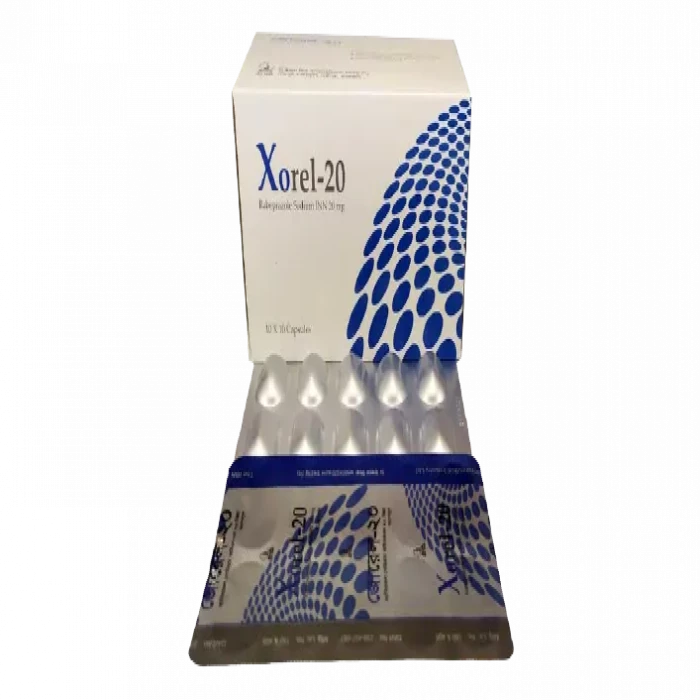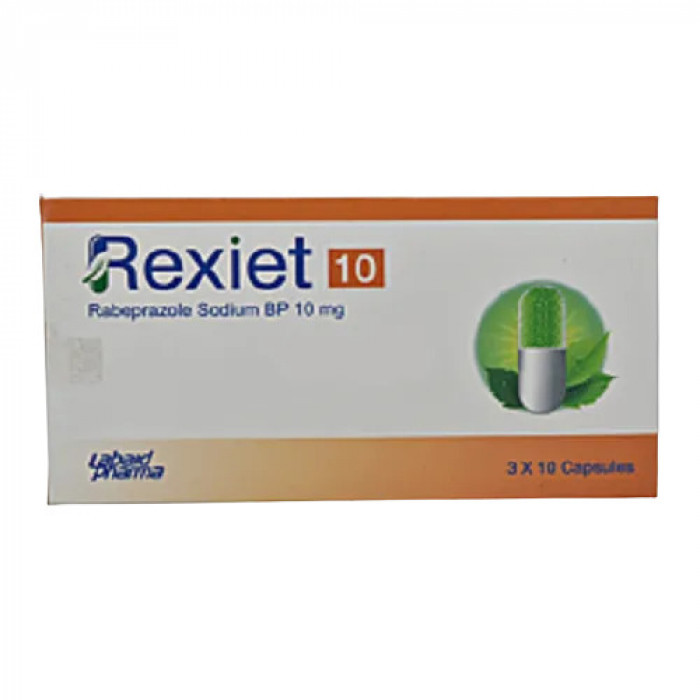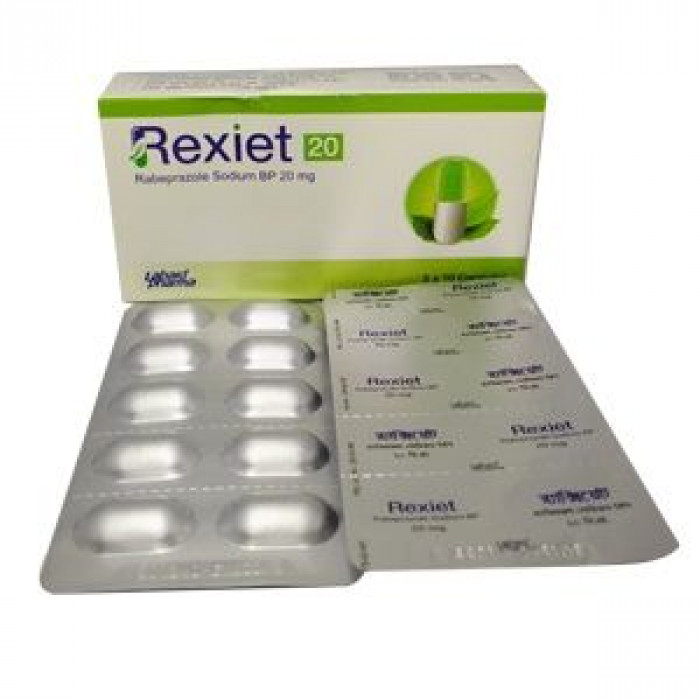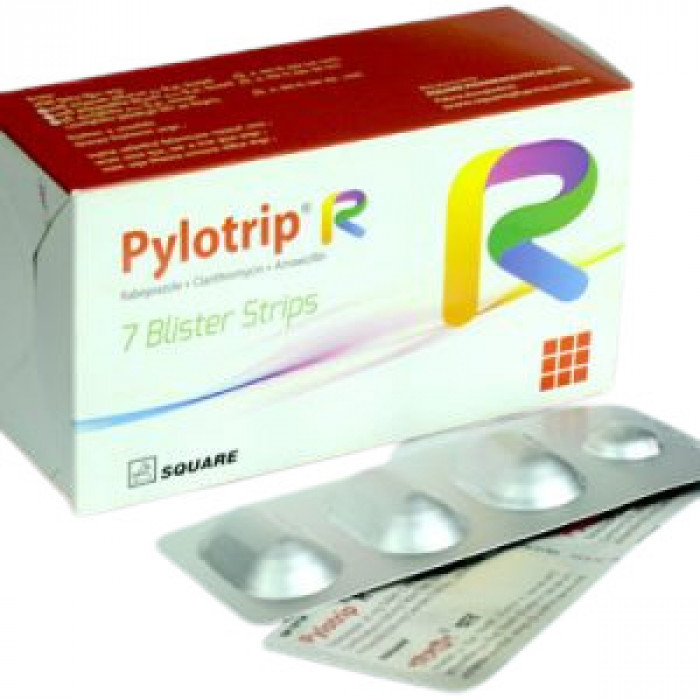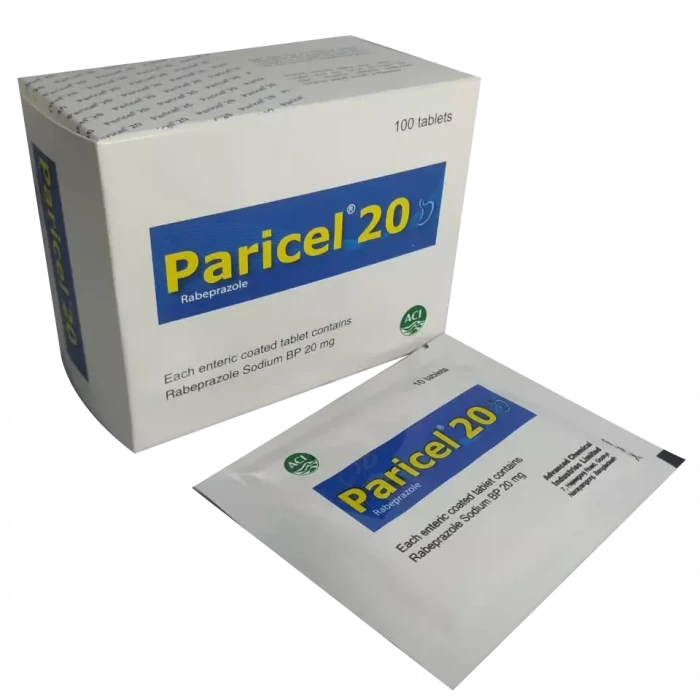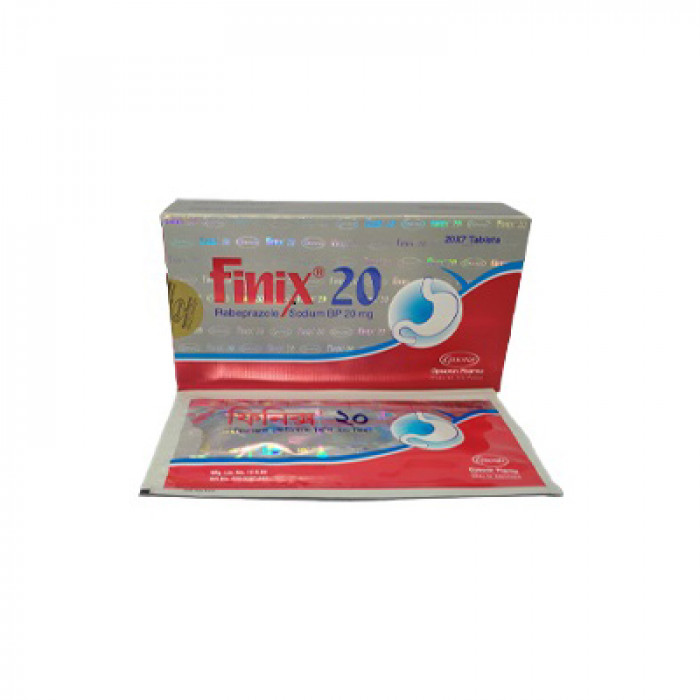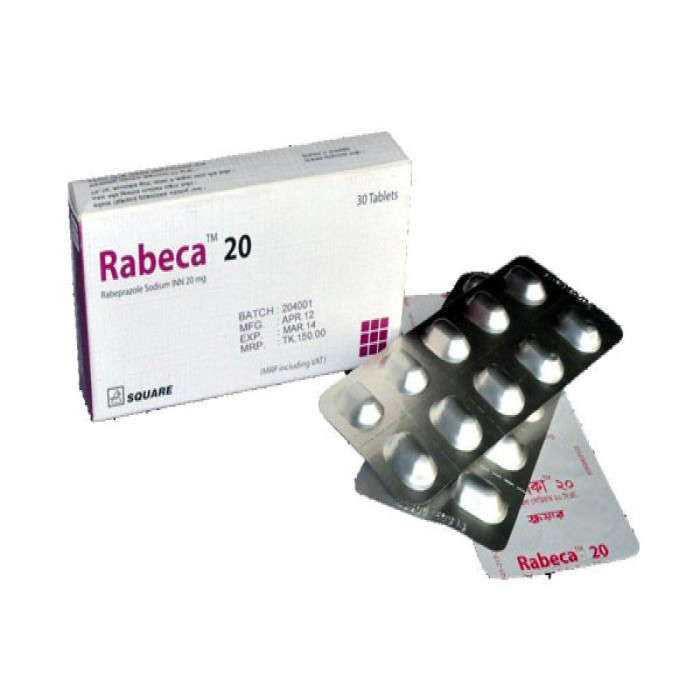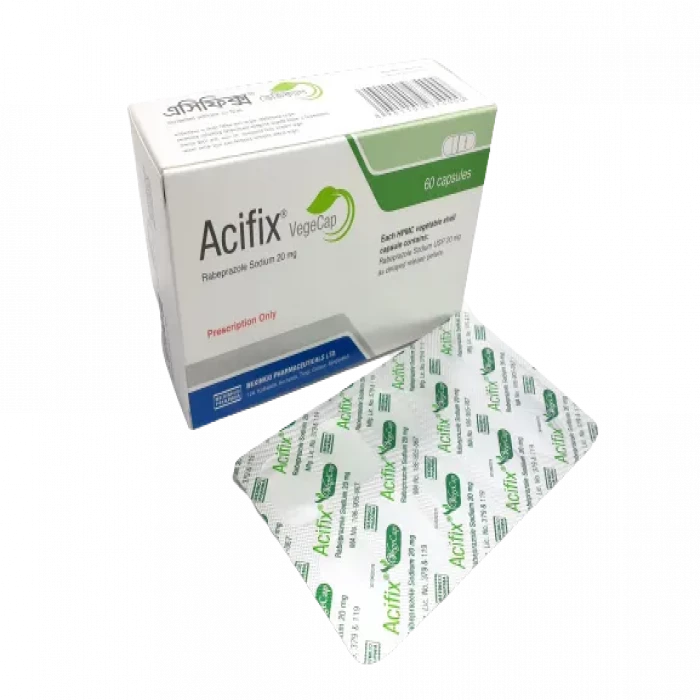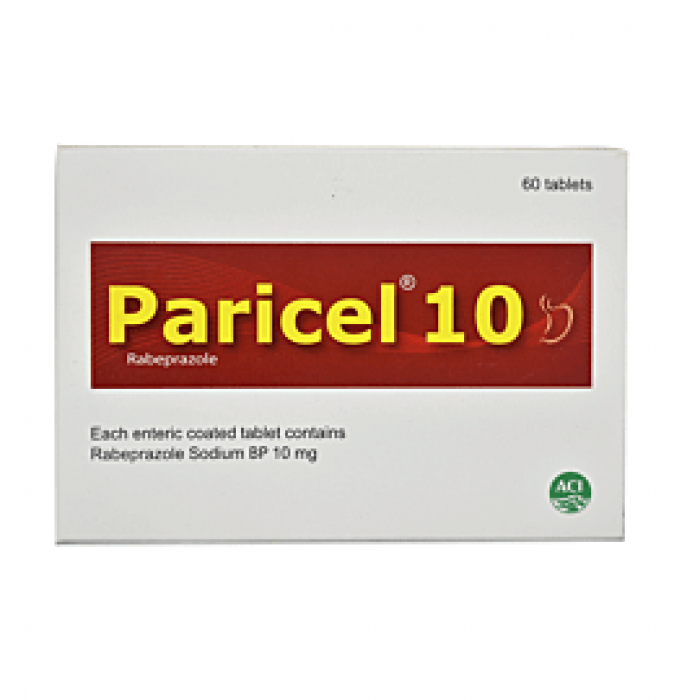
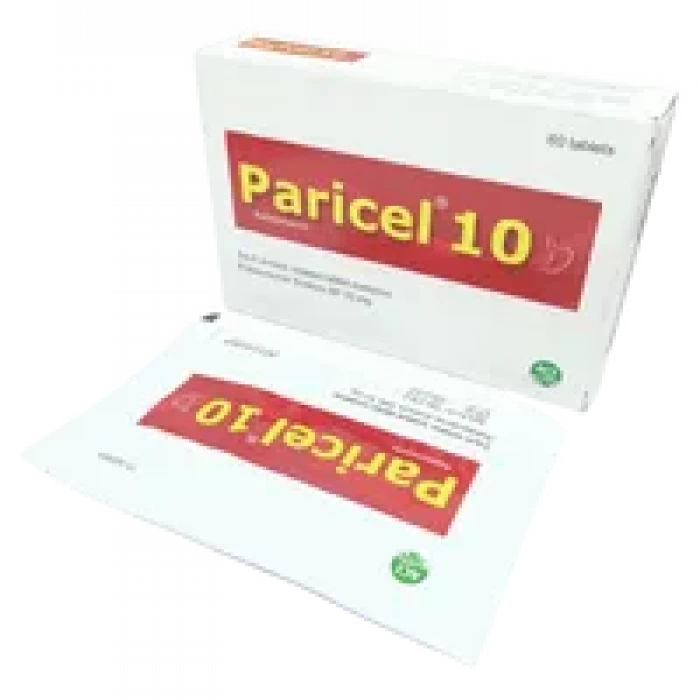
✔ 100% Authentic Product
👁️ Currently Viewing 1145
100% Genuine Products, Guaranteed
Safe & Secure Payments, Always
Fast, Secure & Efficient Delivery
Proper Packaging
 Cash on Delivery - All over Bangladesh
Cash on Delivery - All over Bangladesh Regular Delivery - 12-24 Hours, Dhaka City*
Regular Delivery - 12-24 Hours, Dhaka City* Regular Delivery - 24-48 Hours, All Over Bangladesh*
Regular Delivery - 24-48 Hours, All Over Bangladesh* ফ্রি ডেলিভারিঃ - ৯৯৯ টাকা+ অর্ডারে, ঢাকা
শহরে
ফ্রি ডেলিভারিঃ - ৯৯৯ টাকা+ অর্ডারে, ঢাকা
শহরে ফ্রি ডেলিভারিঃ - ২৯৯৯ টাকা+ অর্ডারে, ঢাকার
বাহিরে
ফ্রি ডেলিভারিঃ - ২৯৯৯ টাকা+ অর্ডারে, ঢাকার
বাহিরে
✅ Description:
Indications
Rabeprazole Gastro-resistant pills are used to treat the following conditions:
Active duodenal ulcers
Gastric ulcer that is active and benign
Gastroesophageal reflux disease (GERD) that is symptomatic, erosive, or ulcerative (GERD).
Gastro-esophageal Reflux Disease (GERD) is a disease that affects the esophagus and Long-term planning (GERD Maintenance)
Symptomatic treatment for gastroesophageal reflux disease (GERD) ranging from mild to severe (symptomatic GERD)
Syndrome of Zollinger-Ellison
Helicobacter pylori eradication in patients with peptic ulcer disease in combination with appropriate antimicrobial treatment regimens.
Pharmacology
Rabeprazole inhibits the gastric H+/K+-ATPase at the secretory surface of the gastric parietal cell, which decreases gastric acid secretion. Rabeprazole has been classified as a gastric proton-pump inhibitor since this enzyme is thought to be the acid (proton) pump within the parietal cell.
Dosage & Administration
Active Duodenal Ulcer and Active Benign Gastric Ulcer: The recommended oral dose for both bioactive duodenal ulcer and active benign gastric ulcer is 20 mg to be taken once daily in the morning. Most patients with active duodenal ulcer heal within four weeks. However, a few patients may require an additional four weeks of therapy to achieve healing. Most patients with active benign gastric ulcer heal within six weeks. However, again a few patients may require an additional six weeks of therapy to achieve healing.
Erosive or Ulcerative Gastro-Esophageal Reflux Disease (GERD): The recommended oral dose for this condition is 20 mg to be taken once daily for four to eight weeks.
Gastro-Esophageal Reflux Disease Long-term Management (GERD Maintenance): For long-term management, a maintenance dose of rabeprazole sodium 20 mg or 10 mg once daily can be used depending upon patient response.
Symptomatic treatment of moderate to very severe Gastro-Esophageal Reflux Disease (symptomatic GERD): 10 mg once daily in patients without oesophagitis. If symptom control has not been achieved during four weeks, the patient should be further investigated. Once symptoms have resolved, subsequent symptom control can be achieved using an on-demand regimen taking 10 mg once daily when needed.
Zollinger-Ellison Syndrome: The recommended adult starting dose is 60 mg once a day. The dose may be titrated upwards to 120 mg/day based on individual patient needs. Single daily doses up to 100 mg/day may be given. 120 mg dose may require divided doses, 60 mg twice daily. Treatment should continue for as long as clinically indicated.
Eradication of H. pylori: Patients with H. pylori infection should be treated with eradication therapy. The following combination given for 7 days is recommended. Rabeprazole sodium 20 mg twice daily, clarithromycin 500 mg twice daily and amoxicillin 1g twice daily.
For indications requiring once-daily treatment Rabeprazole tablets should be taken in the morning, before eating; and although neither the time of day nor food intake was shown to have any effect on rabeprazole sodium activity, this regimen will facilitate treatment compliance. Patients should be cautioned that the Rabeprazole tablets should not be chewed or crushed, but should be swallowed whole.
Interaction
Break produces a significant and long-lasting hindrance of gastric corrosive emission. An interaction with a compound whose retention is pH subordinate may happen. Co-administration of rabeprazole sodium with ketoconazole or itraconazole may result in a noteworthy diminish in antifungal plasma levels. Subsequently person patients may ought to be observed to decide in case a measurement alteration is essential when ketoconazole or itraconazole are taken concomitantly with Break. No interaction with fluid stomach settling agents was watched. The retention of atazanavir is pH-dependent. Subsequently PPIs, counting rabeprazole, ought to not be co-administered with atazanavir.
Contraindications
Hypersensitivity to the active ingredient or any excipient. Rabeprazole is not recommended during pregnancy or nursing.
Side Effects
Rabeprazole is generally well tolerated in both short and long-term studies. Headache, diarrhoea, abdominal discomfort, vomiting, constipation, dry mouth, increased or decreased hunger, muscle soreness, sleepiness, and dizziness are all possible side effects of rabeprazole.
Pregnancy & Lactation
US FDA pregnancy category 'C'. Considers have been performed in creatures and have uncovered no prove of disabled richness or hurt to the embryo due to Rabeprazole. There are in any case, no satisfactory and well-controlled considers in pregnant ladies. Rabeprazole is likely to be excreted in human drain, a choice ought to be made whether to cease nursing or to cease the medicate, taking into consideration the significance of the medicate to the mother.
Precautions & Warnings
Because a symptomatic response to Rabeprazole therapy does not rule out the presence of stomach or esophageal cancer, the potential of cancer should be ruled out before starting treatment with Rabeprazole 20 mg Gastro-resistant Tablets.
Patients on long-term treatment (especially those who have been on it for more than a year) should be monitored on a frequent basis.
Proton pump inhibitors, especially when used in high dosages and for long periods of time (>1 year), can raise the risk of hip, wrist, and spine fractures, especially in the elderly or in the presence of other known risk factors. Proton pump inhibitors may raise the total risk of fracture by 10–40%, according to observational studies. Other risk factors may have contributed to some of the increase. Patients at risk of osteoporosis should be monitored and supplemented with vitamin D and calcium as needed.
It's impossible to rule out the possibility of cross-hypersensitivity interactions with other proton pump inhibitors or substituted benzimidazoles.
Rabeprazole gastro-resistant pills should not be chewed or mashed, but rather eaten whole.
Post-marketing reports of blood dyscrasias have been reported (thrombocytopenia and neutropenia). When an alternate etiology could not be found, the occurrences were usually straightforward and resolved after the rabeprazole was stopped.
Storage Conditions
Keep the temperature below 30°C and away from light and moisture. Keep out of children's reach.
⚠️Disclaimer:
At ePharma, we’re committed to providing accurate and accessible health information. However, all content is intended for informational purposes only and should not replace medical advice from a qualified physician. Please consult your healthcare provider for personalized guidance. We aim to support, not substitute, the doctor-patient relationship.





